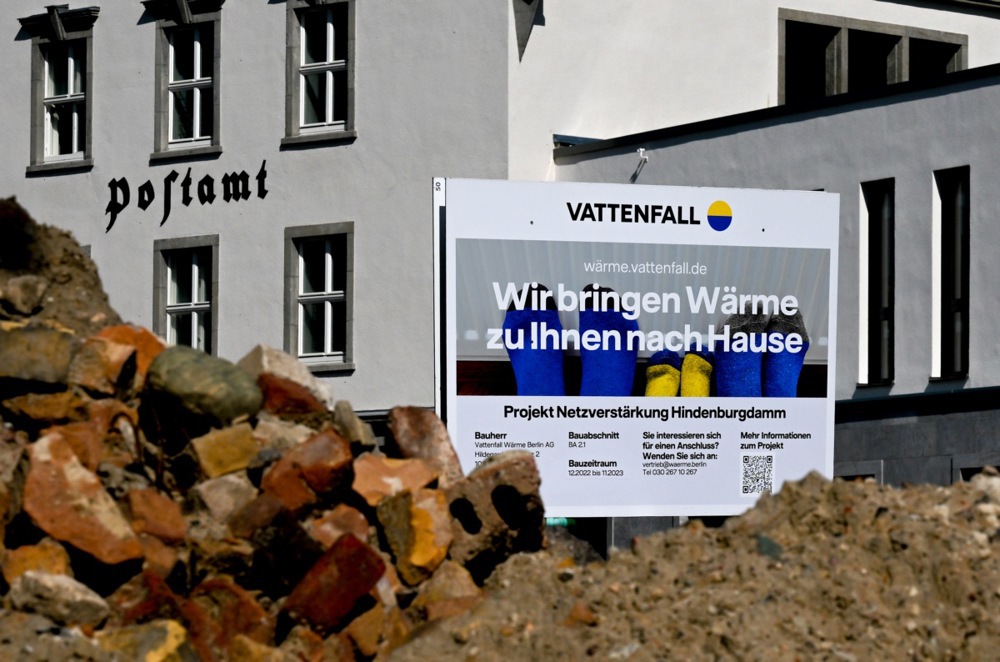A German entrepreneur will now go to court, to contest a fine he received for mocking Green politicians.
Michael Much affixed posters to a fence on his private property, shortly before last autumn’s state elections in Bavaria.
One poster depicts Green Party leader Ricarda Lang as a steamroller, with the phrase “We’ll flatten everything”.
Foreign minister Annalena Baerbock, economics minister Robert Habeck, agriculture minister Cem Özdemir all appear beside Lang.
Underneath features a ten year-old quote from Robert Habeck, “I always found patriotism to be repulsive.”
Another shows Habeck raising three fingers against a backdrop typical of the party’s green aesthetic.
Accompanying it is a statement he made on a talk show, “Companies do not go bankrupt, but only stop producing.” And the question, “Can he even count to 3?”
The posters were visible from a nearby highway and were, according to judicial authorities in Bavaria, a punishable insult.
The "Protectors of Democracy TM" once again hard at work.
The current German government is becoming increasingly authoritarian, just like Belgium, Canada, the UK and many others – all, of course, "to defend democracy."
Via @janfleischhauer pic.twitter.com/qPmjWkVKta
— Ralph Schoellhammer (@Raphfel) March 15, 2024
Thomas Tomaschek, local Greens chairman, said the posters looked costly and “professional”, were defaming and insulting, and were part of an alleged targeted campaign against the Greens.
“It’s below the belt – but we’re used to it,” he said.
After two days, police arrived and took down the posters.
Much, though, put them up again as soon as the officers left.
Police later returned with a signed search warrant and searched Much’s house.
They removed and confiscated his posters, and the public prosecutor imposed a penalty order of €6,000 for “criminal insult to politicians”.
Much says does not want to pay this, and brought his objection to court.
The Miesbach district court will hold a hearing on March 21 to discuss whether hanging the posters constitutes a criminal offence.
The penalty order, seen by Die Welt, reads, “through the banners, you want to express your contempt for the injured parties.”
It then points out Much ridiculed the politicians “because they hold a prominent position in public life as politicians.”
And the statements on the banners “as you at least tacitly accepted, were capable of significantly impeding the public activities of the victims, especially in light of the Bavarian state election campaign taking place at that time.”
Much, a member of the local Christian Democratic Party (CSU), says he saw the posters online and received them free of charge.
He says he received encouragement for showing the posters.
“People are only being fleeced, but the country is not being governed well. And people don’t put up with that anymore,” says Much.
Much, who employs 32 people, says his posters fall under the freedom of expression, guaranteed by the German constitution.
A man in Hesse put up identical posters. Politicians reacted to them with a press release, but he was not prosecuted.
German politics is increasingly heading to the courtrooms, particularly when it involves Greens.
In early February, economics minister Robert Habeck sued a Bavarian who had called him a “complete idiot” (vollpost) on social media.
The public prosecutor’s office found the man had belittled Habeck “in his honour” with his action.





